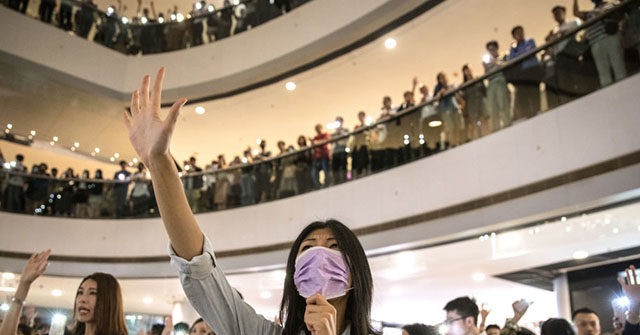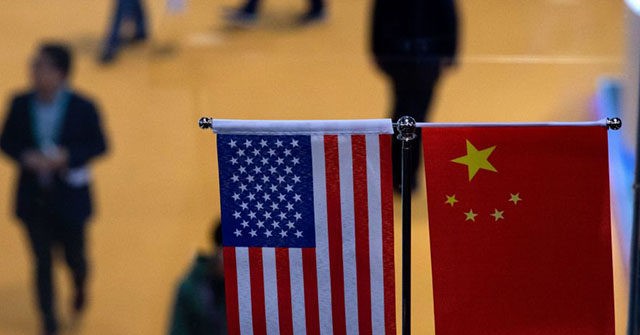When the economy is flourishing but a generation of the populace is fiscally failing, what has gone wrong? Young Americans are struggling financially for a plethora of reasons, but one of those reasons is not the economy. Then why are members of the Millennial and Z Generation struggling financially? Primarily because of an insatiable taste for expensive goods and societal myths that continue to plague the nation in spite of a thriving economy.
Politics aside, the American economy is booming. While this fact is often hard to admit for those who seek to discredit the success of the current presidential administration, the validity of the statistics is undeniable. The United States currently has an unemployment rate of just 3.7 percent, the lowest rate since 1969, and a workforce of nearly 160,000,000 individuals. While the stock market has recently fluctuated, the Dow Jones continues to sit above 27,000. According to the Bureau of Labor, the U.S currently has over 7,200,000 job openings. Besides that, wages continue to increase for the average worker at a rate not seen in over a decade, and consumer inflation continues to reside at the target two percent mark.
All of this means one thing: the United States economy is strong.
So, by extension of that fact, the average young and working American should be economically successful as well. However, many are not. NBC reports that 77 percent of all Millennials are currently in debt, and 25 percent of all Millennials have over $30,000 in debt. While some young Americans must take out student loans for their college education, this is not the greatest cause of debt among Millennials. Credit card debt is the highest debt form for young Americans, with 46 percent of Millennials having some form of credit-related debt.
Furthermore, Millennials within the U.S claim that they have delayed the purchase of a home, the starting of a family, and saving for retirement because of their debt. This is coupled with the fact that over 50 percent of Millennials either have less than $1,000 in a savings account, or no savings account at all.
Have the schools failed to teach students to save and prepare for their future adequately? Maybe. Nonetheless, schools are not wholly responsible for the economic woes of an entire generation. That generation is responsible for its own economic failures.
What are the roots of these woes?
The 1950s was a decade of unparalleled economic success in the United States. Following the conclusion of World War II the economy grew at an undeniably fast rate and prosperity blossomed atop of the ashes of the Great Depression. Those who succeeded in this generation were able to provide for themselves a livelihood never seen before, such as the purchasing of personal vehicles and suburban homes. Consumer goods like television sets and household appliances also became available for the average American. Parents also began to send their children to private educational facilities more than ever before. In the 1950s, this was a life of luxury transposed on ordinary citizens. These ordinary citizens were also able to provide this livelihood to their children of the Baby Boomer generation and children of Generation X.
The problem today is that many children who grew up with the success of their parents and grandparents desire that same level of success in their early adult years. Beyond that, those same children desire the benefits of success before they have achieved their own level of personal success. This leads to the issue of credit card and even student loan debt.
So young Americans have an insatiable taste for expensive goods and experiences that they do not yet have the means to obtain.
This argument can be supported by the vacationing trends of members of the Millennial and Z Generations and the Baby-Boomer Generation. For example, in the state of Illinois, a person between the age of 18 and 34 (millennial) will make approximately $40,000 in one year. A person between the age of 55 and 74 (Baby-Boomer) will make approximately $60,000 in one year. A person between the ages of 18 and 34 will spend approximately $1,400 on vacation during the summer months, while a person between the ages of 55 and 74 will spend approximately $1,900 in the same period. While Millennials spend less overall on vacation, they are spending a greater percentage of their annual income. This is particularly alarming considering that many Millennials have insignificant levels of savings.
In addition, Millennials are sometimes known as the “avocado toast” generation because of their propensity to over-spend on dining out, splurge on expensive coffee, and buy unneeded or excessive amounts of clothing and technology. This is in combination with statistics that show that the average American will now spend over $120,000 to obtain a bachelor’s degree that and 67% of students entering college will attend a four-year university rather than a trade school or community college.
What does this all mean? Young Americans are in a poor financial state, but it’s not the economy’s fault. Young Americans are spending beyond their means for unnecessary items and experiences while paying far too much for a college education.
This is not to suggest that recent high school graduates should forgo a college education. Neither is this suggesting that young Americans should live a miserable existence without technology or modern amenities. This is suggesting, however, that more young Americans should consider four-year university alternatives like trade schools that are far less expensive, where earning potential is only slightly less in a much more stable market. This is suggesting that young Americans should try harder to live within their means and establish savings accounts. This is suggesting that the economy is strong, and when a nation’s economy is strong, it should not be blamed for the economic woes of its people.
The takeaway? Lay off the Starbucks, start a savings account, and stop blaming the American economy for a problem it didn’t create.
Andrew Cunningham is a published author and a junior at the University of Illinois, Springfield. Follow his writings at Conservative Roundtable.
When the economy is flourishing but a generation of the populace is fiscally failing, what has gone wrong? Young Americans are struggling financially for a plethora of reasons, but one of those reasons is not the economy. Then why are members of the Millennial and Z Generation struggling financially? Primarily because of an insatiable taste for expensive goods and societal myths that continue to plague the nation in spite of a thriving economy.
Politics aside, the American economy is booming. While this fact is often hard to admit for those who seek to discredit the success of the current presidential administration, the validity of the statistics is undeniable. The United States currently has an unemployment rate of just 3.7 percent, the lowest rate since 1969, and a workforce of nearly 160,000,000 individuals. While the stock market has recently fluctuated, the Dow Jones continues to sit above 27,000. According to the Bureau of Labor, the U.S currently has over 7,200,000 job openings. Besides that, wages continue to increase for the average worker at a rate not seen in over a decade, and consumer inflation continues to reside at the target two percent mark.
All of this means one thing: the United States economy is strong.
So, by extension of that fact, the average young and working American should be economically successful as well. However, many are not. NBC reports that 77 percent of all Millennials are currently in debt, and 25 percent of all Millennials have over $30,000 in debt. While some young Americans must take out student loans for their college education, this is not the greatest cause of debt among Millennials. Credit card debt is the highest debt form for young Americans, with 46 percent of Millennials having some form of credit-related debt.
Furthermore, Millennials within the U.S claim that they have delayed the purchase of a home, the starting of a family, and saving for retirement because of their debt. This is coupled with the fact that over 50 percent of Millennials either have less than $1,000 in a savings account, or no savings account at all.
Have the schools failed to teach students to save and prepare for their future adequately? Maybe. Nonetheless, schools are not wholly responsible for the economic woes of an entire generation. That generation is responsible for its own economic failures.
What are the roots of these woes?
The 1950s was a decade of unparalleled economic success in the United States. Following the conclusion of World War II the economy grew at an undeniably fast rate and prosperity blossomed atop of the ashes of the Great Depression. Those who succeeded in this generation were able to provide for themselves a livelihood never seen before, such as the purchasing of personal vehicles and suburban homes. Consumer goods like television sets and household appliances also became available for the average American. Parents also began to send their children to private educational facilities more than ever before. In the 1950s, this was a life of luxury transposed on ordinary citizens. These ordinary citizens were also able to provide this livelihood to their children of the Baby Boomer generation and children of Generation X.
The problem today is that many children who grew up with the success of their parents and grandparents desire that same level of success in their early adult years. Beyond that, those same children desire the benefits of success before they have achieved their own level of personal success. This leads to the issue of credit card and even student loan debt.
So young Americans have an insatiable taste for expensive goods and experiences that they do not yet have the means to obtain.
This argument can be supported by the vacationing trends of members of the Millennial and Z Generations and the Baby-Boomer Generation. For example, in the state of Illinois, a person between the age of 18 and 34 (millennial) will make approximately $40,000 in one year. A person between the age of 55 and 74 (Baby-Boomer) will make approximately $60,000 in one year. A person between the ages of 18 and 34 will spend approximately $1,400 on vacation during the summer months, while a person between the ages of 55 and 74 will spend approximately $1,900 in the same period. While Millennials spend less overall on vacation, they are spending a greater percentage of their annual income. This is particularly alarming considering that many Millennials have insignificant levels of savings.
In addition, Millennials are sometimes known as the “avocado toast” generation because of their propensity to over-spend on dining out, splurge on expensive coffee, and buy unneeded or excessive amounts of clothing and technology. This is in combination with statistics that show that the average American will now spend over $120,000 to obtain a bachelor’s degree that and 67% of students entering college will attend a four-year university rather than a trade school or community college.
What does this all mean? Young Americans are in a poor financial state, but it’s not the economy’s fault. Young Americans are spending beyond their means for unnecessary items and experiences while paying far too much for a college education.
This is not to suggest that recent high school graduates should forgo a college education. Neither is this suggesting that young Americans should live a miserable existence without technology or modern amenities. This is suggesting, however, that more young Americans should consider four-year university alternatives like trade schools that are far less expensive, where earning potential is only slightly less in a much more stable market. This is suggesting that young Americans should try harder to live within their means and establish savings accounts. This is suggesting that the economy is strong, and when a nation’s economy is strong, it should not be blamed for the economic woes of its people.
The takeaway? Lay off the Starbucks, start a savings account, and stop blaming the American economy for a problem it didn’t create.
Andrew Cunningham is a published author and a junior at the University of Illinois, Springfield. Follow his writings at Conservative Roundtable.







 Another element that needs to be taken into account in order to address the affordable housing crisis is how the low-income population that would live in these properties will pay the rent. Housing ceases to be considered affordable once it consumes more than 30% of a household’s income, which is unrealistic for the lower-income households in many markets.
Another element that needs to be taken into account in order to address the affordable housing crisis is how the low-income population that would live in these properties will pay the rent. Housing ceases to be considered affordable once it consumes more than 30% of a household’s income, which is unrealistic for the lower-income households in many markets. Microsoft’s popular operating system’s Privacy Statement contains some pretty scary language regarding the scope of its data collection and the rationale behind its potential dissemination. If you had the patience to first read though the 12,000-word service agreement, you will find that the Privacy Statement clearly says,
Microsoft’s popular operating system’s Privacy Statement contains some pretty scary language regarding the scope of its data collection and the rationale behind its potential dissemination. If you had the patience to first read though the 12,000-word service agreement, you will find that the Privacy Statement clearly says,